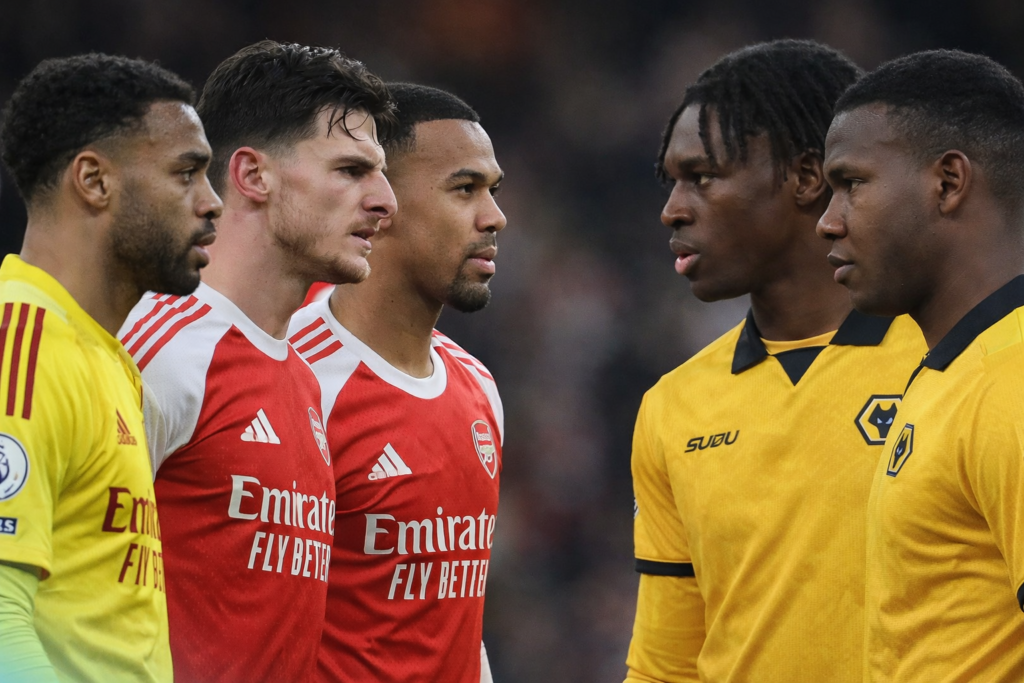Fantasy Premier League (FPL) is more than just picking your favourite players; it’s a game of strategy, stats, and a sprinkle of luck. If you want to outsmart your mates and climb those mini league tables, you need to know the lingo. Here’s a rundown of some must-know FPL terms that will help you navigate the twists and turns of this addictive game. By the way, have you seen every chip that’s been used in your mini league in one easy to follow table? Well, you can find that here
1. Differential
In the world of FPL, a differential player is your secret weapon. These are the low-owned players—often under 10% ownership—who can bring you big points when they perform well. If you want to stand out in your mini-league, scouting out differentials is a great way to gain an edge over your competition.
2. Eye Test
The eye test is all about watching the games and making judgments based on how players perform in real-time. Stats are crucial, but sometimes, you just know a player is on the brink of a breakout based on how they’re playing. Trust your instincts; sometimes they lead to hidden gems!
3. Effective Ownership (EO)
Effective Ownership is a key stat you’ll want to keep an eye on. It’s the percentage of managers who own a player combined with the percentage who have captained them. Understanding EO helps you gauge how a player’s performance will affect your rank. If you own a player with high EO and they do well, you’ll likely see your rank soar!
4. Template Team
The template team consists of the most popular players that most managers are likely to own. While it’s tempting to fill your squad with these players, breaking away from the template can lead to unique strategies. A mix of template and differential players can keep your team balanced.
5. Hits
In FPL, “hits” refer to the point deductions you incur when making additional transfers beyond your free ones for the gameweek. Each extra transfer usually costs you 4 points, so it’s essential to weigh the pros and cons before diving in. Sometimes, making a hit can be worth it, especially if you’re bringing in a player with a great fixture!
6. Enabler
An enabler is a budget player who frees up funds for you to spend on higher-priced stars. Think of them as the unsung heroes of your squad. They might not score tons of points, but they allow you to create a well-rounded team that can compete week in and week out.
7. Dead Team
A dead team is an account that hasn’t been actively managed for a while. While they can still score points based on their initial setup, they’re often easy targets in mini-leagues. Keep an eye out for these teams; they can be a source of easy victories!
8. Template Breaker
A template breaker is a player who isn’t part of the standard lineup but performs exceptionally well. If you can spot a template breaker early, you could gain significant ground in your mini-league. Keep an eye out for players who are performing well but aren’t on everyone’s radar.
9. Point Ceiling
The point ceiling refers to the maximum points you can realistically expect a player to score in a given gameweek based on their potential and matchups. Understanding this concept can help you make informed decisions on captaincy picks and transfers.
10. Form vs. Fixtures
This age-old debate is a critical part of FPL strategy. Some managers swear by form, while others look at upcoming fixtures. Balancing these two factors can help you make better choices about who to bring into your squad.
11. Rolling Transfer
A rolling transfer is when you save your free transfer for the next gameweek instead of using it. This tactic allows you to have two free transfers the following week, giving you more flexibility to adjust your squad based on injuries or form.
12. Fixture Swing
Fixture swing occurs when a team’s upcoming schedule changes from difficult to easy (or vice versa). Keeping track of fixture swings is crucial for making timely transfers and maximizing points.
13. Budget Pick
Budget picks are affordable players who still deliver decent points. Finding these gems is essential for maximizing your squad and allowing for more premium player purchases.
Armed with this lingo, you’re now ready to dominate the FPL landscape. Understanding these terms will not only help you communicate better with your fellow managers but also enhance your overall strategy.
Which ones did I miss? Have you and your mates got your own? Let me know on Instagram. Happy managing!




